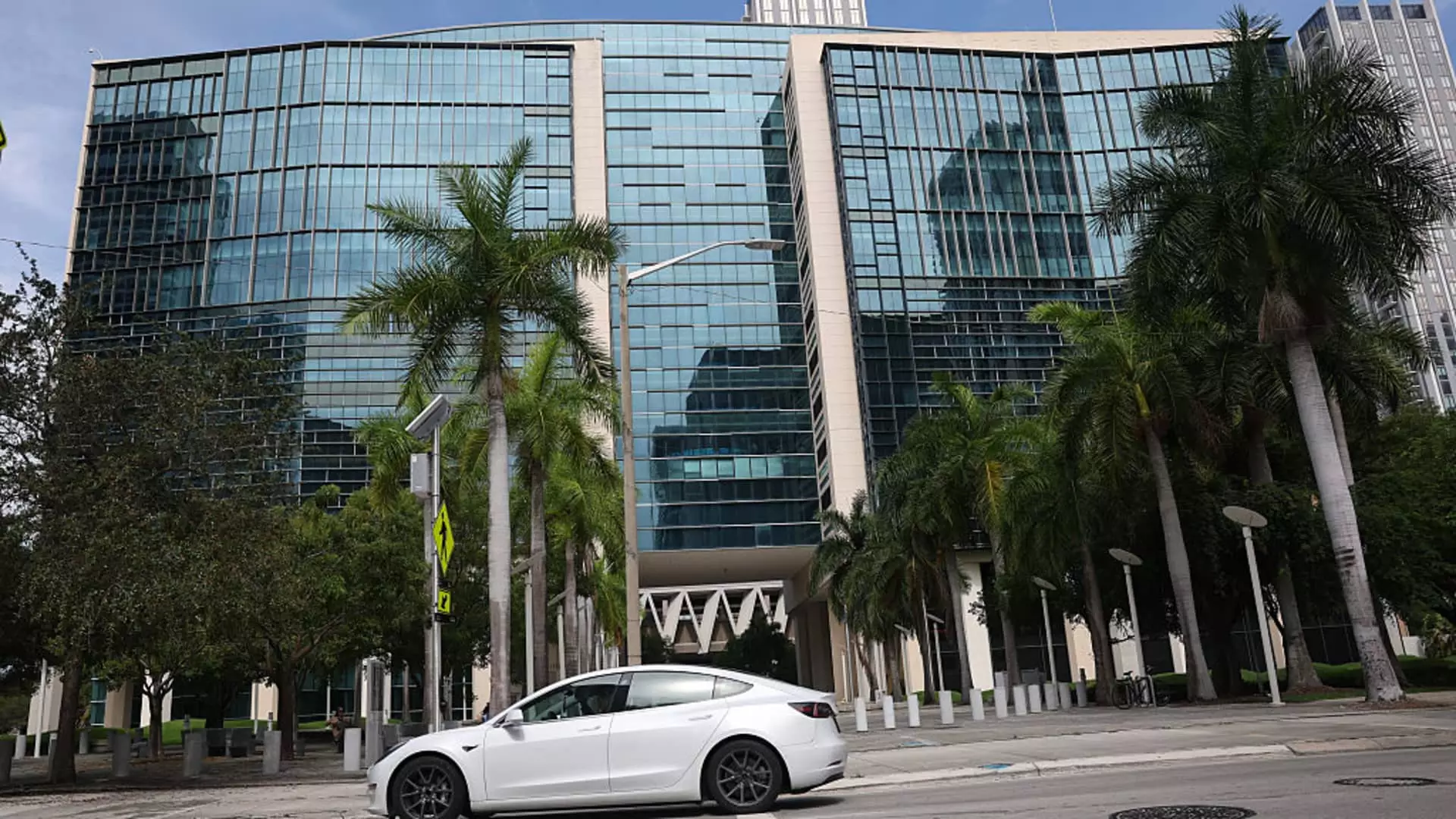The ongoing lawsuit against Tesla over the 2019 fatal crash in Key Largo exposes a fundamental tension within the modern automotive industry: the allure of cutting-edge automation versus the lurking danger of overconfidence in technology. While the courtroom proceedings seem to revolve around one tragic incident, they symbolize a larger societal debate about the ethical responsibilities of corporations rushing to market innovative—but potentially dangerous—technologies. Tesla’s Autopilot, once heralded as a leap toward a driverless future, has now become a litmus test for corporate integrity and regulatory oversight. The case isn’t merely about assigning blame; it’s about questioning whether a company like Tesla has been transparently honest about the limitations of its systems, or if it’s prioritizing growth at the expense of public safety.
Misleading Promises and Dangerous Overreach
One of the most troubling aspects of this case is the way Tesla allegedly marketed their Autopilot system. The company’s statements, scrutinized in court, paint a picture of a brand that promised safety and innovation but may have exaggerated the capabilities of their partially autonomous technology. Elon Musk’s optimistic comments—such as claiming Autopilot would “virtually eliminate crashes”—lend an aura of invincibility to the system. Such claims, whether intentionally misleading or not, contributed to a dangerous complacency among users. Drivers like George McGee, relying heavily on Autopilot, apparently believed it could handle situations that it was simply not designed for, such as complex intersections and unexpected obstacles. The consequence? Tragedy.
This raises profound questions about corporate responsibility. Are tech companies like Tesla—and by extension, Musk—being reckless with the public’s trust? Is it ethical to promote autonomous features that are still inherently flawed? The legal battle should serve as a warning that overhyping safety features hampers informed decision-making by consumers and can lead to catastrophic results.
Profit-driven Innovation or Neglect of Human Life?
From a critical perspective, Tesla’s aggressive push for automation seems motivated not solely by innovation but by the allure of market dominance and profit. The temptation to claim leadership in autonomous driving technology appears to have clouded the company’s judgment. Under the guise of progress, there’s a risk that safety protocols have been overlooked, or worse, deliberately downplayed. Judge Beth Bloom’s statement about Tesla potentially acting in reckless disregard underscores this concern: is the company sacrificing precaution for profit?
This lawsuit exposes these issues vividly. Tesla’s historical pattern of settling or dismissing cases suggests a preference for damage control over accountability. Yet, this case is different. It is the first to confront Tesla directly in federal court on such a matter, suggesting that systemic issues may be at play rather than isolated incidents. For a company that has long positioned itself as a pioneer shaping the future, these allegations threaten its reputation and raise uncomfortable questions about whether technological advancement justifies overlooking the fundamental duty to protect human life.
The Broader Impact: Regulatory Failure or Ethical Sanctity?
What this trial reveals is a troubling disconnect between industry innovation and regulatory oversight. While Tesla’s case is specific, it echoes a recurring pattern in the tech-driven landscape: corporations push the boundaries before society fully understands or regulates the consequences. The debate over Autopilot’s safety is not purely legal; it’s about whether existing regulatory frameworks are robust enough to hold tech giants accountable or if they are simply reactive, leaving consumers vulnerable.
From a moral standpoint, Tesla’s approach appears shortsighted. The profit-driven race to autonomous vehicles risk turning human lives into collateral damage in the pursuit of market dominance. If the court decides in favor of the plaintiffs, it could set a precedent that mandates stricter oversight and truthfulness in the marketing of autonomous systems. The responsibility for ensuring safety lies not only with regulators but also with corporations that have a duty to prioritize human safety over revenues.
Ultimately, this case underscores the urgency for a recalibration of priorities—where technological innovation does not eclipse ethical responsibility. If Tesla fails here, it would reinforce a dangerous narrative that big corporations can sidestep accountability while pushing the boundaries of what’s possible. But if justice prevails, it might signal a meaningful step toward a future where safety and transparency reign supreme over unchecked corporate ambition.

